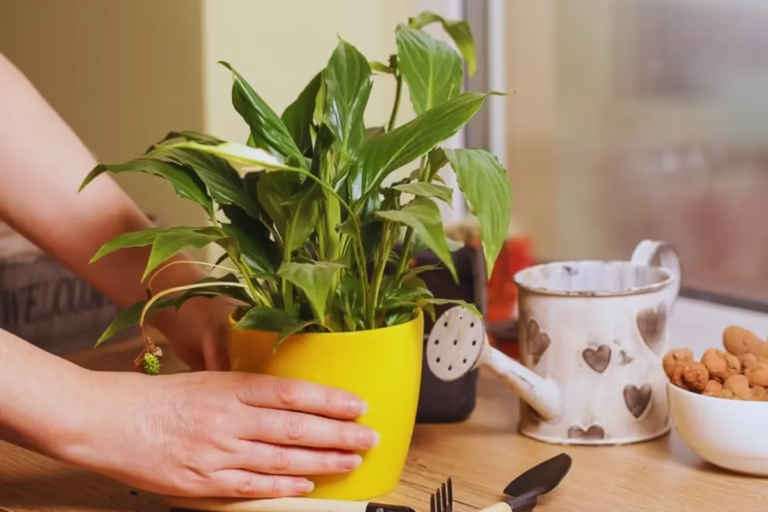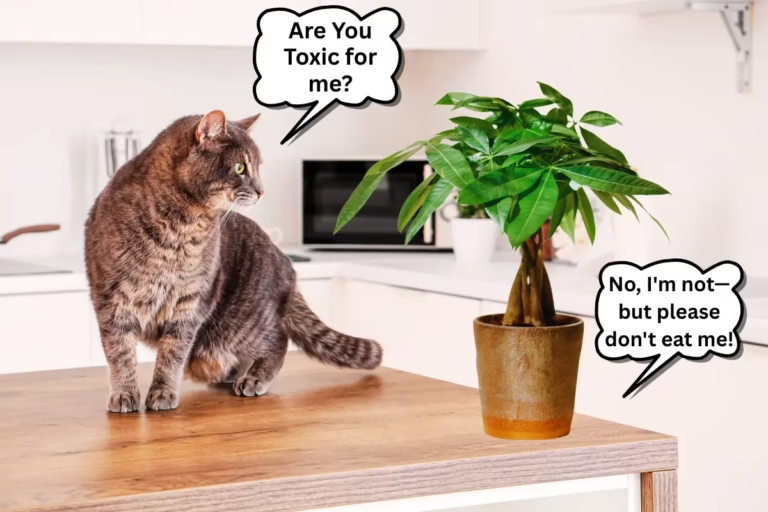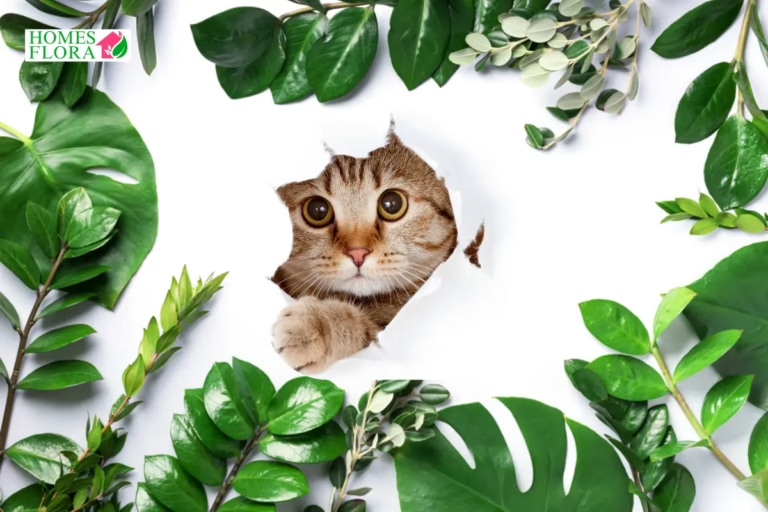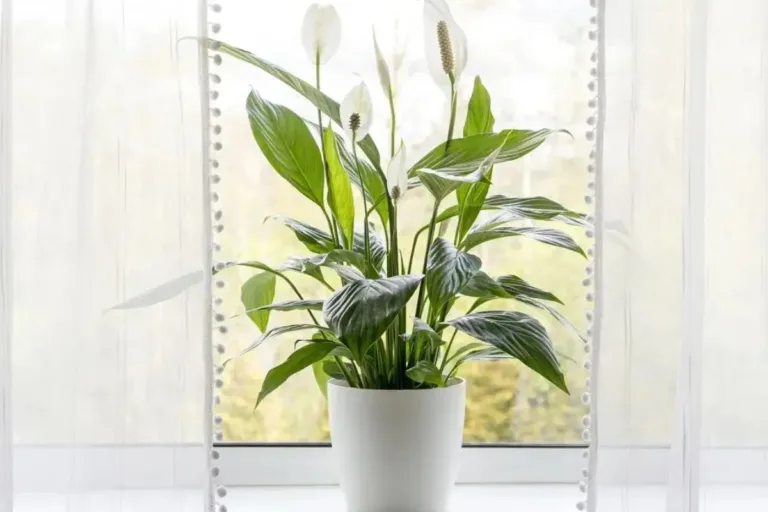Is Peace Lily Toxic to Cats, Dogs, Birds, Rabbit & Childrens

Recently, a reader shared a concern about Peace Lilies and the safety of their pets and children. This raised an important question: How toxic are these popular plants to our furry friends and little ones? If you’re wondering about potential risks to cats, dogs, birds, rabbits, or young children, you’re in the right place. In this blog, we’ll cover what you need to know about Peace Lily toxicity, symptoms to watch for, and quick steps to ensure a safe home for everyone.
Quick Answer
Peace lilies are toxic to cats, dogs, and rabbits due to calcium oxalate crystals, which can cause irritation, drooling, and vomiting. Treatment includes rinsing the mouth and seeking veterinary help.
Peace Lilies Toxicity Concerns
Peace Lilies are loved for their striking white blooms and ability to purify indoor air, making them a popular choice for brightening up homes. However, knowing that these beautiful plants can pose risks to pets and young children if ingested is essential. Peace Lilies contain calcium oxalate, a naturally occurring substance that can cause irritation if chewed or swallowed.
This plant’s appeal often brings it into homes with curious cats, dogs, and young children, all of whom may accidentally come into contact with it. Understanding the potential dangers can help you make informed choices about keeping Peace Lilies safely in your space. In this blog, we’ll explore the facts, symptoms, and precautions to ensure the well-being of all family members—including the furry and feathered ones.
Poisonous Material Inside Peace Lily
The existing Types of peace lilies have the toxic material of calcium oxalate crystals. These needle-like compounds are found in the plant’s leaves, stems, and flowers. When ingested, they can penetrate tissues in the mouth, throat, and digestive tract, leading to irritation, pain, and swelling. Calcium oxalate crystals are part of the plant’s natural defence mechanism, discouraging animals from eating them. Knowing about these compounds can help pet owners, and parents make safer choices
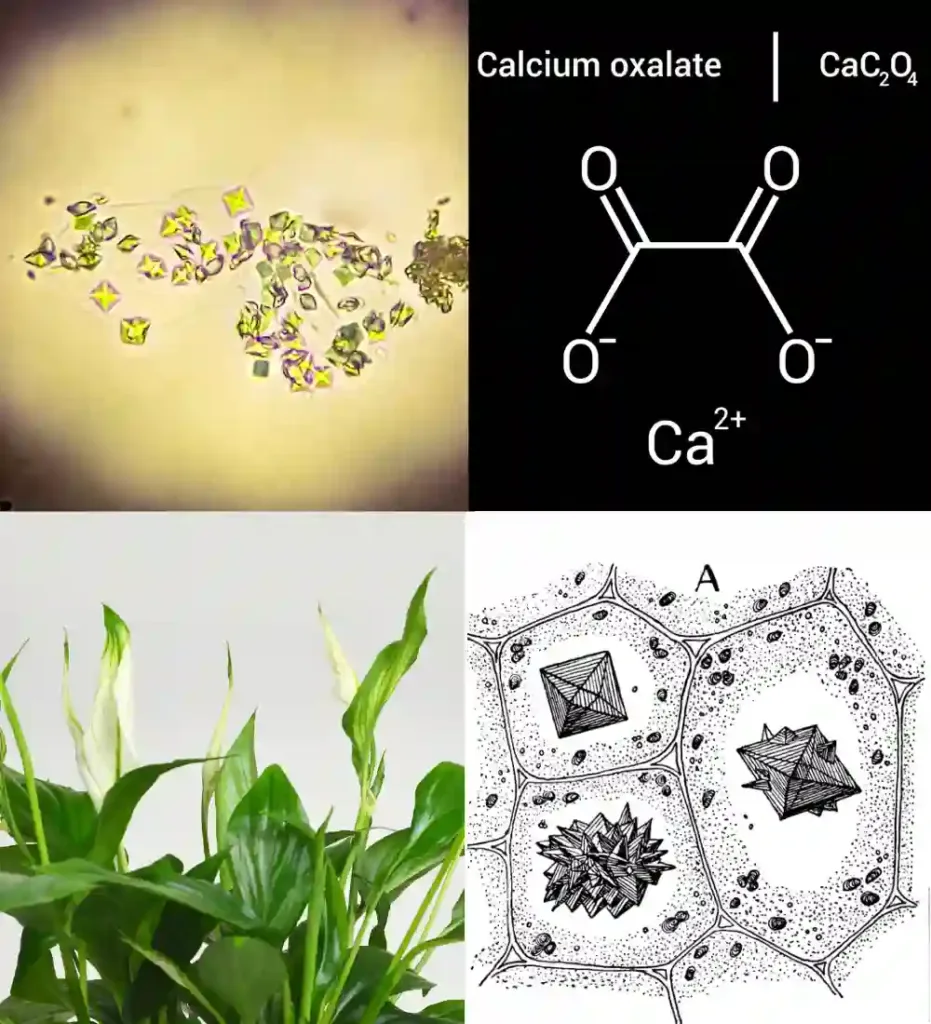
How Dangerous Are Peace Lilies for Cats and Dogs?
Peace Lilies can be quite harmful to cats and dogs if ingested, though they are generally not fatal. When a cat or dog bites into the plant, the calcium oxalate crystals irritate the mouth and throat, causing symptoms like drooling, pawing, and vomiting. In severe cases, the swelling can make swallowing difficult, leading to more distress for the animal.
While Peace Lily poisoning is rarely life-threatening for pets, it can still be very uncomfortable and alarming. For pet owners who appreciate the plant’s elegance and relatively long peace lily life expectancy, understanding these risks is key to preventing accidental exposure.
Related: Are Prayer Plant Toxic To Cats?
What you will see if peace lily is ingested
Suppose cats, dogs, and other animals like Birds & Rabbits ingest Peace Lily. In that case, you will recognize the symptoms of Peace Lily toxicity, which is crucial for prompt intervention. Here are the specific signs to watch for in different animals and children:
What you will see in Cats
- Excessive drooling
- Pawing at the mouth
- Vomiting
- Swelling of the throat, making it difficult to swallow

symptoms appears in dogs
- Drooling and foaming at the mouth
- Vomiting or retching
- Difficulty swallowing
- Signs of distress or discomfort

Symptoms Appears in Birds
- Changes in vocalizations or behavior
- Reduced appetite
- Lethargy or increased aggression
- Difficulty breathing in severe cases

Symptoms in Rabbits
- Decreased appetite or refusal to eat
- Lethargy or unusual behavior
- Signs of abdominal pain, such as grinding teeth
- Changes in droppings

What happens to children
- Burning sensation in the mouth or throat
- Oral irritation and swelling
- Vomiting or stomach pain
- Skin irritation if touched

Prompt recognition of these symptoms can help you act quickly to provide care, ensuring the safety and well-being of your loved ones. If any of these signs appear, it’s important to consult a veterinarian or a medical professional immediately.
Related: Is Money Tree Toxic to Cats and Dogs
What to Do if Your Pets or Child Has Contact with a Peace Lily
If you suspect that your pet or child has come into contact with a Peace Lily, acting quickly can make a significant difference in their recovery. Here are the steps to take:
do it if your cats or dogs ingested:
Do it immediately for your Loving Childrens
Taking these first aid steps can help alleviate discomfort and ensure that both pets and children receive the appropriate care. Always err on the side of caution and consult professionals when in doubt.
Related: Is ZZ plant toxic to Cats and Dogs
when i have to contact with Vet & Docter
Knowing when to seek professional help is vital for the health and safety of both pets and children. If you suspect that your pet or child has ingested or had significant contact with a Peace Lily, here are guidelines to follow:
For Pets:
For Children:
Prompt action can greatly reduce the risk of complications. Always keep emergency contact numbers handy, whether for your veterinarian or poison control, to ensure you can act quickly if needed. Remember, it’s better to be safe and consult a professional when dealing with potential plant toxicity.
Related: Is Cordyline Toxic To Cats & Dogs


